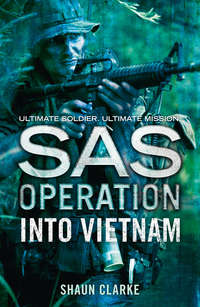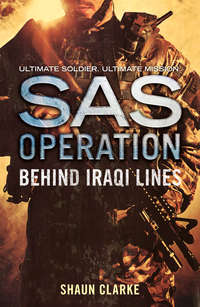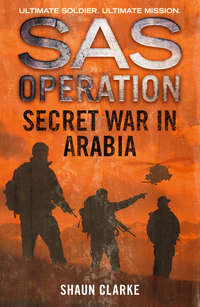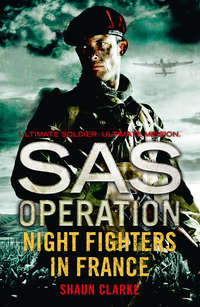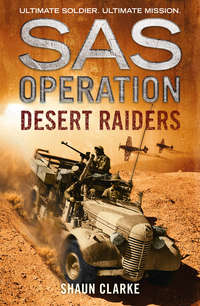
Полная версия
Into Vietnam
‘The first step,’ he said, ‘is to dominate an area surrounding the base out to 4000 yards, putting the base beyond enemy mortar range. We will do this with aggressive patrolling. The new perimeter will be designated Line Alpha. The second step is to secure the area out to the field artillery range – a distance of about 11,000 yards. Part of this process…’ – he paused uncomfortably before continuing – ‘is the resettlement of Vietnamese living within the area.’
‘You mean we torch or blow up their villages and then shift them elsewhere?’ Shagger said with his customary bluntness.
The CO sighed. ‘That, Sergeant, is substantially correct. I appreciate that some of you may find this kind of work rather tasteless. Unfortunately it can’t be avoided.’
‘Why? It seems unnecessarily brutal – and not exactly designed to win hearts and minds.’
The CO smiled bleakly, not being fond of the SAS’s reputation for straight talking and the so-called ‘Chinese parliament’, an informal talk between officers, NCOs and other ranks in which all opinions were given equal consideration. ‘The advantage of resettling the villagers is that whereas the VC aren’t averse to using villagers as human shields, we can, in the event of an attack, deploy our considerable fire-power without endangering them – another way of winning their hearts and minds.’
‘Good thinking,’ Shagger admitted.
‘I’m pleased that you’re pleased,’ the CO said, wishing the outspoken SAS sergeant would sink into the muddy earth and disappear, but unable to show his disapproval for fear that his own men would think him a fool. ‘So one of our first tasks will be to finish the destruction of a previously fortified village located approximately a mile and a quarter south-east of this base. Huts and other buildings will be torched or blown up and crops destroyed. This we will do over a period of days. Unpleasant though this may seem to you, it’s part of the vitally necessary process of reopening the province’s north-south military supply route, and eventually driving the enemy back until they’re isolated in their jungle bases.’
‘So what’s the SAS’s role in all this?’ Shagger asked him.
‘Your task is to pass on the skills you picked up in Borneo to the ARVN troops and to engage in jungle bashing – patrolling after the VC who’ve turned this camp into their private firing range. Eventually, when Line Alpha has been pushed back to beyond the limits of field artillery, you’ll be given the task of clearing out a VC stronghold in a bunker-and-tunnel complex. The location will be given to you when the time comes.’
‘Why not give us the location now?’ Red asked.
‘Because the less you know the better,’ the CO replied.
‘You mean if we’re captured by Charlie, we’ll be tortured for information,’ Red replied.
‘Yes. And Charlie’s good at that. Now, there’s another important aspect to this operation. You’ll be advised and assisted – though I should stress that the collaboration should be mutually beneficial – by a three-man team from Britain’s 22 SAS. They’ll be arriving from the old country in four days’ time.’
A murmur of resentment filled the room and was only ended when Shagger asked bluntly: ‘Why do we need advice from a bunch of Pommie SAS? We know as much about this business as they do. We can do it alone.’
‘I’m inclined to agree, Sergeant, but the general feeling at HQ is that the British SAS, with their extensive experience in jungle warfare, counter-insurgency patrolling, and hearts-and-minds campaigning in places as different and as far apart as Malaya, Oman, Borneo and, more recently, Aden, have a distinct advantage when it comes to operations of this kind. So, whether you like it or not, those three men – a lieutenant-colonel and two sergeants – will soon be flying in to act as our advisers.’
‘Bloody hell!’ Red exclaimed in disgust.
The CO ignored the outburst. ‘Are there any questions?’ he asked.
As the men had none, the meeting broke up and they all hurried out of the humid tent, into the drying, steaming mud of the compound of the completed, now busy, FOB. The sky above the camp was filled with American Chinook helicopters and B52 bombers, all heading inland, towards the Long Hai hills.
4
When the USAF Huey descended over Nui Dat, having flown in from Saigon, Lieutenant-Colonel Callaghan, Jimbo and Dead-eye looked down at an FOB of the kind they had themselves constructed in Malaya: a roughly circular camp with defensive trenches in the middle and sentry positions and ‘hedgehogs’ – fortified sangars for twenty-five-pounders and a nest of 7.62mm GPMGs – located at regular intervals around the perimeter. This well-defended base was surrounded by another perimeter of barbed wire and – they assumed from the levelling of the ground – claymores. Surprisingly, instead of the foxholes and pup tents they had expected, they found large tents and timber huts with roofs of corrugated iron, plus four helicopter landing zones and a parking area for all the camp’s vehicles.
‘They’ve been busy,’ Callaghan shouted over the roar of the helicopter. ‘They only arrived here a few weeks ago. That’s some job they’ve done.’
‘Aussies work hard and play hard,’ Jimbo said.
‘Hard bastards,’ Dead-eye said. ‘You can’t deny that.’
‘Well, let’s hope we can win their respect,’ Callaghan replied.
‘Good as done,’ Jimbo assured him, while Dead-eye simply nodded.
As the Huey came down on one of the four LZs, its spinning rotors whipped up a cloud of dust and fine gravel that obscured the soldiers on the ground. Callaghan and his two men were out of the chopper even before the rotors had stopped spinning, stooped over and covering their eyes with their hands as they hurried out of the swirling dust. As they were straightening up again, a man wearing jungle greens with sergeant’s stripes and a 9mm Browning holstered at his waist climbed down from his jeep and saluted Callaghan.
‘Lieutenant-Colonel Callaghan?’
‘Correct,’ Callaghan replied, returning the salute. ‘Two-two SAS.’
‘Sergeant Bannerman, sir. Three Squadron SAS. I’ve been sent by the CO to collect you. Welcome to Nui Dat.’
‘Thank you, Sergeant. This is Sergeant Ashman, commonly known as Jimbo, and Sergeant Parker, known to one and all as Dead-eye.’
Shagger nodded at both men, grinning slightly as he studied Dead-eye.
‘I take it your nickname means you’re pretty good with that SLR.’
Dead-eye nodded, and Jimbo said, ‘That and everything else, mate. If it fires, Dead-eye’s your man.’
‘What about you, Sarge?’
‘I get by,’ Jimbo said.
Shagger grinned. ‘Let’s hope so.’ He then nodded at Lieutenant-Colonel Callaghan and said, ‘Right, boss, let’s get to it. If you’d like to take a seat in the jeep I’ll drive you straight to the boss. When you’ve had a chat with him, I’ll show you to your quarters. By the way, they call me Shagger.’
They all laughed and piled into the jeep. The Australian drove them a short distance to a large wooden hut with a corrugated-iron roof and a sign at the top of the steps of the raised veranda, saying: ‘Headquarters 3 Squadron SAS’. A second sign at the opposite side of the steps said: ‘Abandon hope all ye who enter here.’
Grinning at each other, Callaghan, Jimbo and Dead-eye followed Shagger into the building. Inside was a spacious administration area sealed off behind a counter and ventilated by slowly spinning ceiling fans. Seated behind the desks were a mixture of 3 Squadron SAS and 5th Battalion male clerks, all of them looking busy. A proliferation of propaganda leaflets from the VC had been pinned to the notice-boards to entertain those waiting for their appointments, among them: ‘Aussie go home: there is no resentment between the Vietnamese and the Australian people!’ and ‘Australian and New Zealand Armymen: Do not become Washington’s mercenaries; urge your government to send you back home.’
‘Someone obviously has a sense of irony,’ Callaghan said.
‘The VC drop them all the time,’ Shagger told him. ‘A wide variety. Troopers coming in here for appointments are generally amused by them. That’s the favourite.’ He pointed to an illustration of a handsome Australian soldier sharing drinks with a sexy lady. The caption said: ‘The sensible man is home with his woman, or someone else will be. Is this war worth it?’ ‘Given the amount of Dear John letters that come from back home, that one’s definitely ironic. This way, please.’
Shagger then led them to an office at the end of a short corridor. A sign on the open door said: ‘Commanding Officer’ but no name was given. They could see the CO at his desk, studying maps and charts, and when the sergeant coughed into his fist he looked up.
‘Your visitors, boss,’ Shagger said, ushering the three men from 22 SAS into the office. He introduced them to Lieutenant-Colonel Rex Durnford, who was blue-eyed, red-haired, suntanned and looked a lot younger than his thirty-nine years. Tipping his chair back and stretching his legs, the CO waved a hand at the scattering of chairs in front of the desk and said, ‘Please be seated, gentlemen.’
Durnford smiled brightly and said, ‘Well, gentlemen, far be it from me to make you feel unwelcome – and I appreciate that you’re only doing your jobs – but I do think I’m going to have trouble explaining to my men why they should need to be advised by the British SAS.’
‘We’re not so much advisers as observers,’ Callaghan replied. ‘It’s therefore felt that the advice could flow both ways.’
‘Not sure what you mean by that.’
‘One of the reasons we’ve been sent here is that we have particularly good knowledge of counter-insurgency operations and jungle survival in particular.’
‘We were in Malaya as well.’
‘Not like us, as I’m sure you know.’
‘Nothing you did that we didn’t do,’ Shagger put in, though with no trace of anger – more like a man just setting the record straight.
‘Granted,’ Callaghan said. ‘But you didn’t do it as much. Nor did you do it in such a wide variety of locations. The war here isn’t like the war in Malaya. It’s not like Borneo either. It’s like a little bit of both – the VC live a nomadic life and know the jungle well – but apart from that it’s not the same thing. Therefore certain of your superiors in Canberra believe that no matter what your experiences in Malaya and Borneo, you can learn a lot from what we picked up, not only there, but also in places like Oman and the Yemen.’
‘I dispute that,’ Shagger said.
‘You do. Canberra doesn’t. And the orders to send us three here came all the way to Hereford from Canberra.’
‘You’re asking us to take advice regarding a war we’re already involved in,’ countered Shagger. ‘You haven’t been involved. You don’t know what goes on here. With all due respect, sir, it’s us who should be advising you. That’s the root of the hard feelings.’
Callaghan smiled. He was pleased to note that although the Australian SAS were not related to the British, they certainly appeared to have adopted at least one of the lessons of Hereford. Sergeant Bannerman, whether he knew about Chinese parliaments or not, obviously felt at ease speaking his mind in front of his CO. Callaghan liked him for that and knew, from the expression on their faces, that Jimbo and Dead-eye felt the same.
Конец ознакомительного фрагмента.
Текст предоставлен ООО «ЛитРес».
Прочитайте эту книгу целиком, купив полную легальную версию на ЛитРес.
Безопасно оплатить книгу можно банковской картой Visa, MasterCard, Maestro, со счета мобильного телефона, с платежного терминала, в салоне МТС или Связной, через PayPal, WebMoney, Яндекс.Деньги, QIWI Кошелек, бонусными картами или другим удобным Вам способом.


